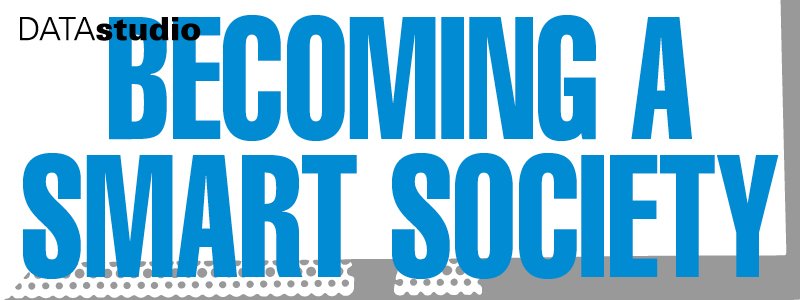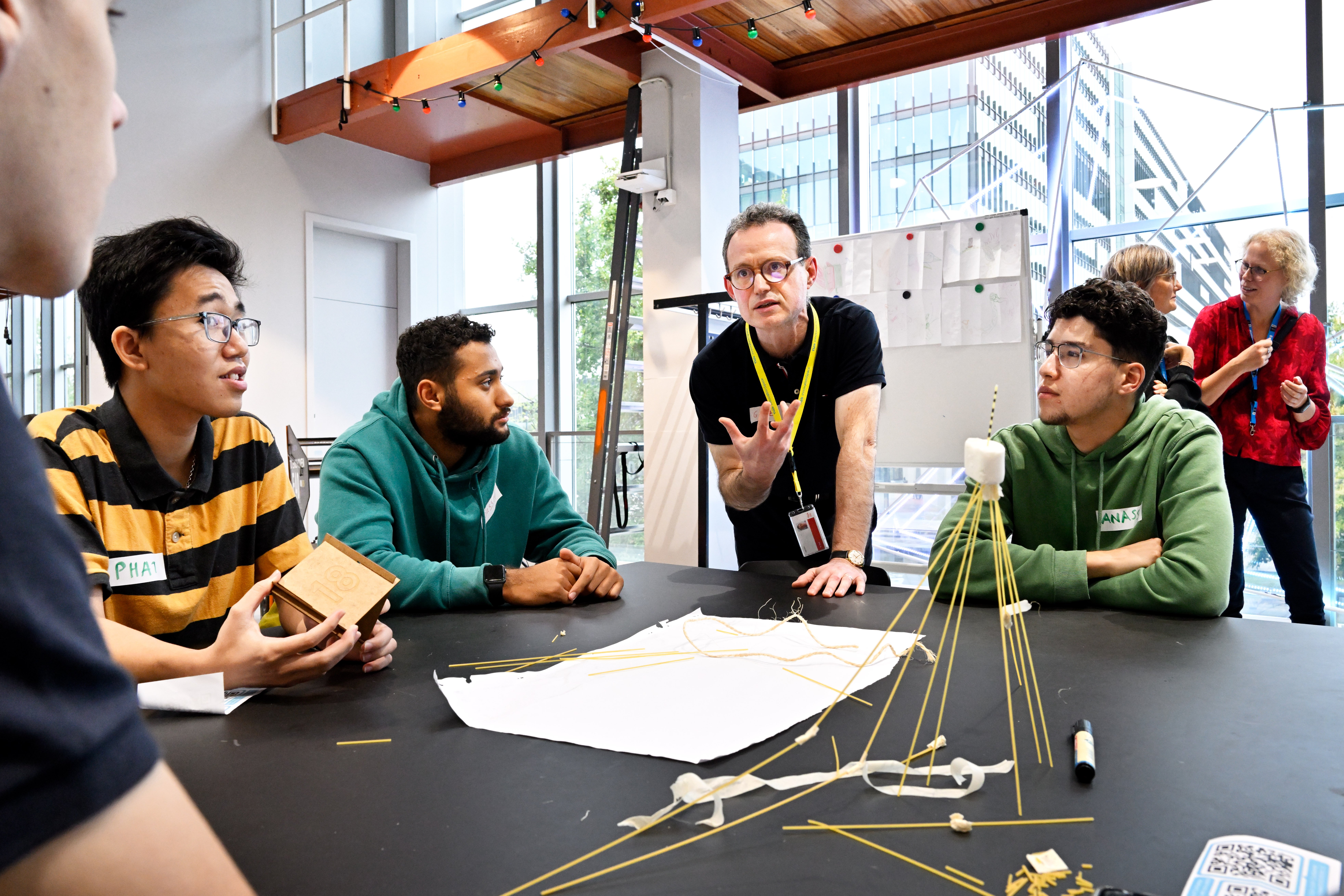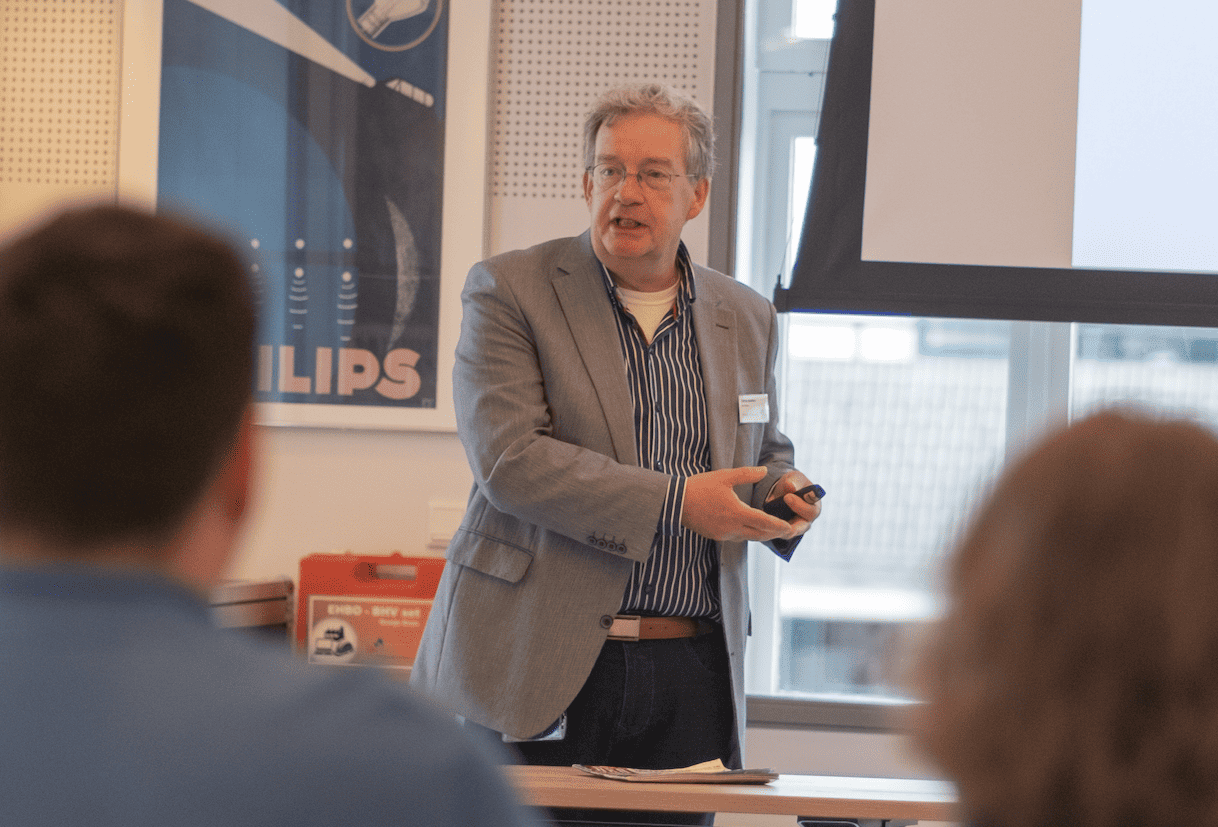
Eindhoven wants to become a smart society. But how does that work? What’s going on in a society like that? Are there any good examples to learn from? DataStudio Eindhoven explores the transition a city has to go through to actually become such a smart society. Each week, we present a new contribution on E52. This week: is Eindhoven really as smart as its citizens? Read all the articles here.
A City as Smart as its Inhabitants is a series of well-attended lectures, organized by the DataStudio in the Eindhoven Library. Every third Thursday of the month, people from diverse backgrounds come together in the library to listen to a speaker (a researcher, designer, or both) who works somewhere at the intersection of technology, participation, and urban development. After the lectures, a lot of time is devoted to discussing the perspectives that were outlined, and to see what Eindhoven can learn from the examples and practices that were presented. Half of these talks have already taken place. Time to take stock. Because: How does a city become as smart as its inhabitants? How does Eindhoven become a smart society? What are the opinions of the speakers and the important points from the discussions? Which are the practices to exemplify, and what should we especially not (continue) to do?
Innovation also causes problems
Marcel Schouwenaar discussed the hilarious, but bordering on cynical, negligence demonstrated by the latest generation of connected objects that together form the Internet of Things. Among other things, he mentioned the Smart TV that can be controlled by voice, but actually continuously listens to and forwards the conversations in living rooms to central servers where they are analysed to collect data on consumer behaviour and preferences. Jaromil (just like Arjen Lubach last Sunday) talked about the irresponsible practices of AirBnB and Uber and their disastrous impact on the development of popular tourist cities. The advice of these experts, is in fact for everyone: be more attentive to the problematic consequences of innovation. The time of mere optimism about innovation is behind us. Also, realize that if promises are kept – and fortunately, this happens regularly – it is only one side of the coin.
“What happens when we are not sceptical enough when adopting new technologies into our daily lives”,

Control over data
Maurits Martijn showed us what happens when we are not sceptical enough when adopting new technologies into our daily lives. We have hardly any control over the data that is collected about our lives, preferences, beliefs, and behaviour. This is also precisely the first major issue that Sir Tim Berners-Lee calls for in his open letter on the three biggest challenges of the current internet. Berners-Lee is the inventor of the World Wide Web. The open letter was published on 12 March, 2017, the 28th anniversary of the moment he made his proposal public. Formulated as a condition for responsible development of a smart society: Citizens, businesses, and governments should be fully aware that citizens themselves must have simpler, clearer and more decision-making control over what is and what is not happening with their data. Therefore, more data literacy is also necessary among citizens and governments.
Designing with people
Both Marcel Schouwenaar and Denis Roio/Jaromil are designers and developers of technology. They are typically motivated by what new technologies can do. And their warnings are unified. If we can formulate them as tips: When it comes to technology, the quality of people’s lives should be improved: do not start with what the technology can do, and search for an application from there, but begin with discovering what the question or problem that actually needs intervention is. Develop with people, not before people. Both also mentioned that it is not essential to have technical specialists develop technology. Always be mindful of the complexity of the experience (or even expertise) from the different groups and fields to whom the question concerns.
Ethical approach to technology
All three speakers in the series to date have indicated that we, in our widespread optimism about the possibilities of technology, have developed up to now, little insight and feeling for the ethical implications of new applications. Unfortunately due to a number of less desirable developments, we are now learning to see it better. Optimism was only partly justified. That does not mean that we should reject technological development, but we must be more critical, more careful, and more versatile than we have been up to this point, when we consider the quality of new applications.
The next speaker in the series A City as Smart as its Residents is Dr Linnet Taylor, researcher of the data practices of cities. She works at the University of Tilburg. The question into which she will delve is: How can the ecosystems around technology in cities develop where the ethical handling of data becomes a matter of course? Everybody will come together to discuss how we, as a smart society, can use data for the greater good.







